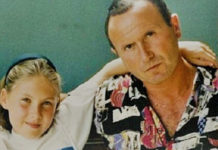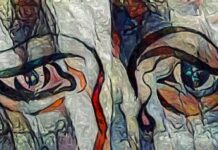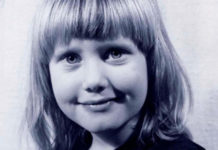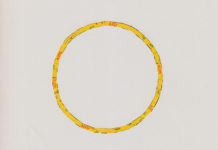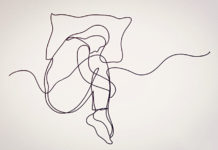The Monster in Our House: What Psychiatric Medication Did to My Father
When we eliminated his last psychotropic prescription, it was as if my father came back from the dead. All of the monster-like qualities that we thought were severe symptoms of his dementia have practically disappeared. We’ve found ourselves questioning whether he has dementia at all.
Corrections Officers, Not Clinicians
Six months ago, I was just starting in a position called "Treatment Team Coordinator" at a secure residential treatment facility. In my home state,...
Compassion and the Voice of the Tormentor
I'd like to share some personal thoughts on the nature of the Hearing Voices group method, and the insights that this kind of support generates. Through these groups, a tradition of mutual healing is being created that honors subjective experiences, and sharing our stories with each other in this way propels this exciting movement forward.
Why I Take Drugs and Don’t Plan to Stop
If the drugs I am prescribed did not benefit me overall, believe me, I would no more take them willingly than I would swallow rat poison. I went through many attempts to wean myself, but invariably the loss of my ability to do art brought me to the place where I went back on them. I remain on them and I want to remain on them.
Psychiatry’s Failure to Acknowledge Who I Really Am
This is not how the mental health system should treat "psychotic" people. Mental health providers should treat them with compassion, empathy, respect, love and understanding. With a circle of loving and understanding people surrounding a person in crisis, I have no doubt that most "psychosis" would normalize in time.
Inside My Suicidal Mind
I need somebody who will push through that thick cotton wool ball with me until that moment when we can toss it away altogether. Someone who really tries to look at this world through the lens of my life, not theirs.
My Hospital Discharge Summary: An Intriguing Work of Fiction
I recalled a brief intercourse with a lady two months earlier that went something like this: “Why don’t you want to take medication?” to which I replied, “Because I think psychiatry is a sham.” Needless to say, my response hastily resulted in a temporary though adequately lengthy loss of my autonomy.
Made It! – Successfully Navigating Both Mainstream and Alternative Treatment for Mental Illness
I’ve come to understand that a single-minded focus on either therapy or medication can do great, if unintended, harm. I’m sharing this brief history of my journey, with both my good and bad decisions, to illustrate the importance of conscious care, and of maintaining the ability to change course.
The Answers in the Attic: A Mother-Daughter Story of Overmedication and Recovery
In 1959, my mother suffered what people referred to as a nervous breakdown after my sister’s birth. I puzzled over why Mom never recovered, until I found Dad’s collection of medical records in my sister’s attic. How could anyone give a nursing mother with three small children so many drugs in such a short period of time?
Passage
When I was twenty-eight, I had what is commonly referred to as a “psychotic break.” It was nothing like what I would’ve imagined, given the cultural stereotypes. It was not in the least nonsensical. There was an exacting inner logic and meaning. Twenty-two years later, I continue to believe in the harrowing greatness of what my younger self went through.
Heteronormative Violence of Mainstream Psychiatry: A Cautionary Tale
I was in a form of reparative therapy in British Columbia, Canada, for six years, after which I filed a medical malpractice suit against my former psychiatrist, “Dr. Alfonzo,” for treating my homosexuality as a disease. If these new laws are to be criticized, it is that the use of “change” therapies on people older than 18 should be prohibited as well. I was 24 when I met Dr. Alfonzo, 31 when I left his therapy, and almost 40 when the lawsuit ended in an out-of-court settlement in 2002. Nearly twenty years after leaving the therapy, I am still affected by the consequences of those six years of “treatment.”
“All for the Best of the Patient”
For psychiatric ‘help’ to happen by force is a paradox and makes absolutely no sense. It can destroy people's personality and self-confidence. It can lead, in the long run, to physical and psychological disability. My dear daughter Luise got caught in this ‘helping system’ by mistake, but she didn't make it out alive. I'm sad to say I later discovered that the way Luise was treated was more the rule than the exception.
Regarding the Impossibility of Recovery
Popular illness narratives tend to be of the restitution sort: I was living my life, I became sick, I got well and picked up where I left off. However, this idea that ill health is a journey to wellness doesn’t help someone with a chronic illness or disability to tell her own story, which may not have a (conventional) happy ending. The notion of ‘recovery’ can be damaging when a return to health may not be possible.
Calm, Organized, Homicidal Behaviour – My Connection to School Shooters
There is little doubt in my mind that many school shooters were in an antidepressant-induced state of psychosis, which is a loss of contact with reality that makes it difficult to distinguish between what is real and what is not real. That's what happened to me. I started taking 60mg of Paxil a day. Three days later, I planned my suicide. Then I planned a murder.
Hindsight is 20/20
During my 2003 episode I received a series of ten shocks and at first they seemed to “magically” cure me. However, it only took a month for me to go back to feeling depressed and suicidal — again.
Engaging Voices, Part 2: Working Our Way Toward Connection
Sam Ruck shares his fourth excerpt from his book Healing Companions, which describes his life with, and love for, his wife and her “alters.”
Catching My Breath After A Panicked Journey
$24,000 later and no one knew what was wrong with me. They sent me home with a bag of pills. After being in the hospital, I developed a fear and mistrust of doctors. My general practitioner suggested antidepressants. More pills. It was all they could recommend. I wouldn’t take them. My anxiety worsened. I was obsessed with the idea that if I slept, I would die. So, I stayed awake as much as I could. For an entire year, this was how I lived.
Bearing False Witness: Childhood Psychiatry, Trauma, and Memory
Through journaling, I realized that my lifelong confusion surrounding my memories of traumatic events was the direct result of the psychiatric labels and drugs I swallowed alongside years of parental abuse.
Letters to My Doctors (Part 2)
Why am I whole when I dance and paint but deathly ill when faced by a European/American medical mechanic? Why was I locked in a room for a week in the first place? Was it to heal? Or was it to fill a bed?
My Letter to an Advocate for Involuntary Treatment
How long would I have to be off meds and stay safe and out of the hospital before my story would mean something to you and the advocates for chemical interventions?
Trapped
Back in 1983, I put myself in a mental ward. I desperately wanted help with my eating disorder, but no one took these types of problems seriously back then. The ward was rather nice, so I returned many times. Nothing good ever came of it, but I always hoped this time, it will do some magic. Every time I left, I'd realize my eating problems hadn't been solved at all.
The Breaking Point
How did I become someone who could barely function? I was a high-performing sales executive ranked in the top 2% of an international business communications company. But now, after using powerful psych meds for depression and anxiety for more than a decade, I couldn’t do basic things like go to the grocery store, plan a meal, make dinner, or get together with friends.
Mental Hell-Care: My Sibling’s Story
Doctors refuse to believe psychiatric medications have caused my sibling, Pat, any harm. Over a three-year period, however, Pat's insurance companies have paid out more than one million dollars to warehouse Pat and to provide "treatment" that has caused complete disability.
The Best Medicine
Today I am not only medication-free but also thriving. While many people in my life are delighted by my transformation, most did not think it possible. How did I transition from being a chronic, "seriously mentally ill" psychiatric patient to a vibrant being?
My Story and My Fight Against Antidepressants, Part II
Healing mental health issues through correct supplements as well as nutrition is, I believe, the final factor for me in my journey. This is possibly what was missing in my first attempt at coming off, and why my brain and body couldn’t handle the extreme anxiety I felt in December 2013. I am ensuring that as I prepare to taper off the Lexapro in 2015, my brain and body are being supported in every way possible.

